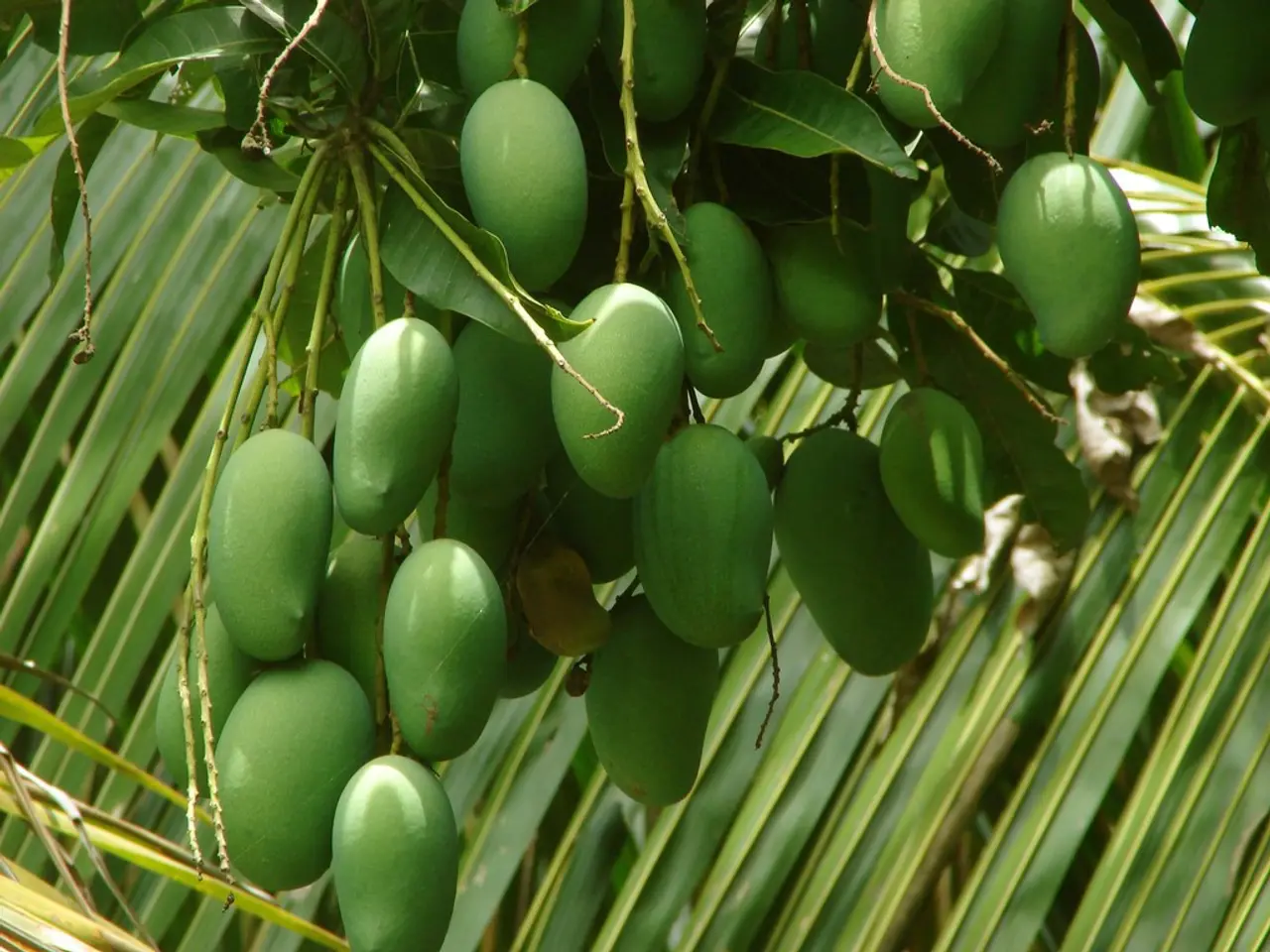Comprehensive Walkthrough for Mango Cultivation for Inexperienced Farmers Across India
In the vast and fertile lands of India, mango farming presents a lucrative opportunity for both experienced and first-time farmers. With the right knowledge and practices, you can establish a thriving mango orchard that contributes to India's status as the world's largest mango producer.
Mango trees require a balanced supply of essential nutrients, including potassium, phosphorus, and nitrogen, for healthy growth and superior fruit quality. Organic fertilizers like compost, vermicompost, and farmyard manure can boost soil fertility and structure. Regular soil testing helps in identifying nutrient deficiencies and targeted fertilization.
Successfully marketing and selling mangoes involves identifying the target audience and tailoring strategies accordingly. This may include partnerships with local markets, social media, wholesale opportunities, and value-added products.
The best mango farmland should have thick, loose soil that drains well, and be situated in an area with warm temperatures and a clear dry season. Properly preparing the mango farmland is necessary, involving clearing the land, assessing soil quality, and adding organic compost.
For long-term success in mango farming, first-time farmers should prioritize selecting quality planting material, suitable soil conditions, proper care, and sustainable practices. This includes choosing good quality seeds or grafted saplings from reliable sources, planting in fertile, well-drained sandy or loamy soil with a pH of about 5.5 to 7.5, ensuring full sunlight exposure, watering young trees frequently, pruning trees regularly, adopting integrated pest management and sustainable practices, and understanding that mango trees take several years (usually 3-5 years) to start fruiting.
Additional tips for first-time mango farmers include monitoring for common diseases like powdery mildew and anthracnose and managing them promptly, mulching around the base to conserve moisture and suppress weeds, and considering local climate and seasonal patterns, as variety choice and management practices can vary regionally.
Micronutrients such as magnesium, boron, and zinc are crucial for fruit development. Pruning mango trees helps maintain their shape, promotes healthy growth, and boosts fruit yield. Overripe mangoes can be damaged during handling or shipping, so they should be harvested when ripe yet still hard.
Mango farming is a profitable business in India, where mangoes are a famous fruit and an important crop. By following these best practices, new farmers can establish healthy, productive mango orchards for sustainable, long-term success.
- Effective water management is essential for a thriving mango farmland, considering that proper irrigation ensures healthy root development and optimal fruit growth.
- In addition to mango farm management, it's crucial to manage the financial aspects of the business astutely, as investments in quality planting material, soil nutrients, and sustainable practices can yield high returns.
- Weather patterns play a significant role in mango farming, as understanding local climate and seasonal variations can help farmers align planting schedules, manage diseases, and optimize the harvesting process for better yields and market success.




